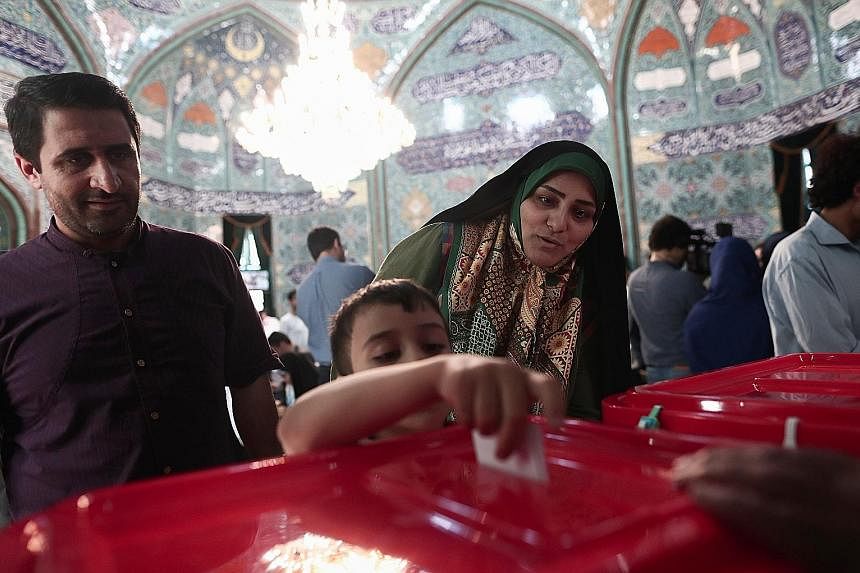ISTANBUL • Iranians have cast their ballots for president in a vote that could either boost Iran's engagement with the world or possibly plunge the country back into greater diplomatic isolation.
Voters formed long lines yesterday at polling stations in mosques, schools, and gymnasiums across the country - from the shore of the Persian Gulf to the Caspian Sea - including in temperatures topping 32 deg C.
Shortly before polls were due to close, state television reported that voting had been extended by at least two extra hours to cope with a "rush of voters".
Many Iranians described waiting hours to vote.
"It's my national responsibility to take part in the elections," said 36-year-old Amin, a resident of Teheran and among Iran's 56 million eligible voters, at a polling station.
At stake is the legacy of the incumbent President, Mr Hassan Rouhani, who ended more than a decade of sanctions as part of a nuclear deal with world powers, including the United States.
His top challenger is hardline cleric Ebrahim Raisi, who views the West with suspicion and insists the easing of international sanctions under the nuclear pact has done little to help ordinary Iranians.
Mr Rouhani has broad support among moderates and others seeking further openings in Iranian policies from social codes to outreach with the West. But Mr Raisi has powerful backers among Iran's powerful security establishment and its ruling clerics, led by supreme leader Ayatollah Ali Khamenei.
Iran's president has important sway over domestic affairs and as the face of Iran to the world, but all key policies such as diplomatic initiatives must be cleared by Mr Khamenei and his inner circle of unelected theocrats.
Still, the election offers stark choices for Iranians on the direction of their country. No Iranian president since 1981 has failed to secure a second term, but Mr Rouhani has faced sharp criticism over the poor economy, and what Mr Raisi said was his "weak" position when negotiating with the West.
Across Teheran yesterday, it was a festive mood as thousands lined up to vote, many coming with family and friends to debate and help one another navigate the complex choices.
Some were dressed for the occasion, with one man looking dapper in bow tie and dinner jacket, while a newly married woman showed up in her wedding dress.
There are no booths in Iranian polling stations, and voting often turns into a communal activity as people discuss their choices openly and help one another fill out the forms, which must be written by hand. As well as picking a president, they also had to select 21 local councillors.
Two other conservative candidates are still officially in the presidential race. If no candidate wins more than 50 per cent of the vote, the top two, presumably Mr Rouhani and Mr Raisi, would face each other a second time in a run-off in a week.
WASHINGTON POST, AGENCE FRANCE-PRESSE

